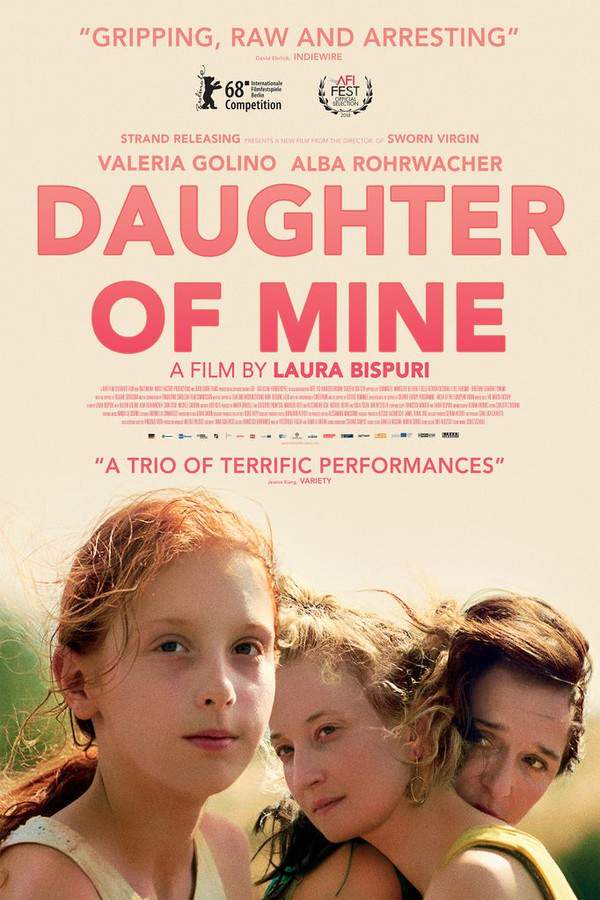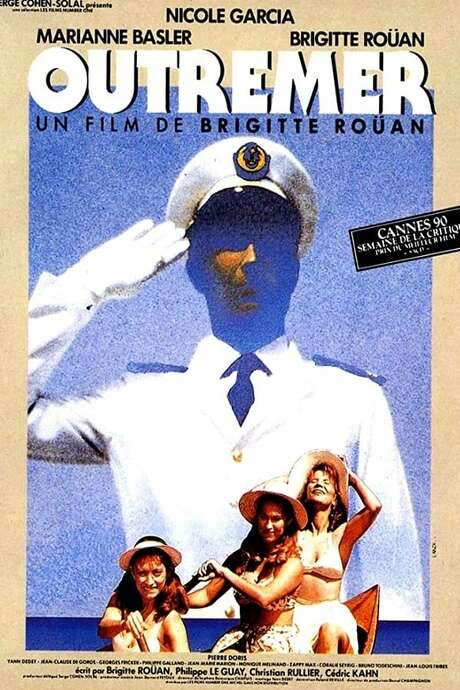A Soldier's Daughter Never Cries 1998

In 1960s Paris, American Bill Willis raises his family in a vibrant, bohemian atmosphere. Returning to the United States, his daughter Channe finds herself struggling to adjust to a more conventional culture that contrasts sharply with her upbringing. Navigating this clash of identities, she seeks to understand her place in the world and reconcile her experiences. Her journey becomes a thoughtful reflection on cultural differences and the universal desire to find where one truly belongs.
Does A Soldier's Daughter Never Cries have end credit scenes?
No!
A Soldier's Daughter Never Cries does not have end credit scenes. You can leave when the credits roll.
Meet the Full Cast and Actors of A Soldier's Daughter Never Cries
Explore the complete cast of A Soldier's Daughter Never Cries, including both lead and supporting actors. Learn who plays each character, discover their past roles and achievements, and find out what makes this ensemble cast stand out in the world of film and television.
External Links and Streaming Options
Discover where to watch A Soldier's Daughter Never Cries online, including streaming platforms, rental options, and official sources. Compare reviews, ratings, and in-depth movie information across sites like IMDb, TMDb, Wikipedia or Rotten Tomatoes.
Ratings and Reviews for A Soldier's Daughter Never Cries
See how A Soldier's Daughter Never Cries is rated across major platforms like IMDb, Metacritic, and TMDb. Compare audience scores and critic reviews to understand where A Soldier's Daughter Never Cries stands among top-rated movies in its genre.


80%
TOMATOMETER

72%
User Score

6.7 /10
IMDb Rating

60
%
User Score
Take the Ultimate A Soldier's Daughter Never Cries Movie Quiz
Challenge your knowledge of A Soldier's Daughter Never Cries with this fun and interactive movie quiz. Test yourself on key plot points, iconic characters, hidden details, and memorable moments to see how well you really know the film.
A Soldier's Daughter Never Cries Quiz: Test your knowledge on the cinematic journey of a family navigating love, loss, and identity in post-war Paris.
Who is the main character and renowned novelist in the film?
Bill Willis
Marcella Willis
Channe
Benoit
Show hint
Awards & Nominations for A Soldier's Daughter Never Cries
Discover all the awards and nominations received by A Soldier's Daughter Never Cries, from Oscars to film festival honors. Learn how A Soldier's Daughter Never Cries and its cast and crew have been recognized by critics and the industry alike.
14th Independent Spirit Awards 1999
Best Feature
Full Plot Summary and Ending Explained for A Soldier's Daughter Never Cries
Read the complete plot summary of A Soldier's Daughter Never Cries, including all major events, twists, and the full ending explained in detail. Explore key characters, themes, hidden meanings, and everything you need to understand the story from beginning to end.
Bill Willis, a celebrated American novelist and World War II veteran, along with his adventurous wife, Marcella, make their home in the heart of Paris during the vibrant 1960s, surrounded by their beloved family. Their tight-knit circle is completed by their six-year-old daughter, Channe, who is as sweet as she is spirited. As much as Marcella yearns for another child, her heartache from multiple miscarriages leaves her family feeling unfinished. However, a twist of fate introduces Benoit, a bashful six-year-old French boy who has been passed through various orphanages and foster homes. At first, Benoit is hesitant, unable to unpack his suitcase due to the fear of being rejected. Yet, he is joyfully enveloped by the warmth and affection that his new family provides. In time, Benoit finds the courage to ask his adoptive father, Bill, to change his name to Billy.
As Billy begins to settle into his new life, Channe finds herself leaning on her steadfast Portuguese nanny, Candida, to navigate the challenges of growing up. Initially, Channe is envious of her new brother, but that jealousy quickly transforms into affection when she invites him to share her bed following a minor mishap. Marcella takes a courageous stand against a strict teacher mistreating her son, while Channe starts to notice the cultural contrasts around her, from the rowdy American visitors who flood the city to the lively circle of friends surrounding her parents.
As the years roll on and they enter their teenage phase, Billy and Channe strengthen their sibling bond. Channe cultivates a close friendship with Francis Fortescue, a flamboyant young man passionate about opera. Despite his lack of a father figure, Francis lives with his quirky expatriate British mother, providing Channe with guidance as she explores her own independence. Simultaneously, Candida faces her fears when her partner, Mamadou, proposes marriage, prompting personal reflection. Meanwhile, as Channe begins to show interest in boys, she finds herself emotionally distancing from Francis, who reveals his secret crush on her.
The family’s once-idyllic existence in Paris is jolted when Bill announces plans to move back to the United States for medical treatment concerning his heart condition. This significant decision propels them into a new reality, forcing them to confront the possibility of leaving behind the vibrant culture and city life that have been woven into the fabric of their identity.
As the 1970s unfurl over the picturesque hills of New England, uncertainty clouds their tranquil lifestyle. Bill’s declining health looms large, alongside Marcella’s struggle with alcoholism, which threatens to unravel the delicate equilibrium they have maintained. In this tumultuous environment, Channe and Billy navigate the challenges of an American high school, where bullying plagues shy Billy, who feels increasingly isolated. In contrast, Channe adopts a more assertive approach, venturing into fleeting romantic encounters. However, her world shifts when she meets Keith, a fellow free spirit who captures her heart.
Amidst the whirlwind of family dynamics, Bill immerses himself in a new literary venture while grappling with worries about leaving a legacy that does justice to his loved ones. The topic of Billy’s adoption, once a proud chapter, now becomes a source of unrest due to a mysterious diary penned by his biological mother during her teenage years. Although Billy has always been curious about his roots, it is only after Bill’s passing that he discovers the chance to explore his origins. In a moment of vulnerability, Marcella hands the diary to Billy, hoping it serves as a bridge to solace and understanding in their shared grief. Yet, Billy finds himself more focused on strengthening his bond with his grieving mother rather than delving into the past.
As weeks pass and emotions ebb and flow, Channe gravitates back to the written word, assisting her father in finalizing his novel leading up to its release. During their healing journey, the family unites one evening, letting music fill the air as they dance together. In a moment of curiosity, Billy glances at the diary that has been waiting for the right moment, unaware that it is destined to play a pivotal role in his journey of self-discovery.
Uncover the Details: Timeline, Characters, Themes, and Beyond!

Coming soon on iOS and Android
The Plot Explained Mobile App
From blockbusters to hidden gems — dive into movie stories anytime, anywhere. Save your favorites, discover plots faster, and never miss a twist again.
Sign up to be the first to know when we launch. Your email stays private — always.
Watch Trailers, Clips & Behind-the-Scenes for A Soldier's Daughter Never Cries
Watch official trailers, exclusive clips, cast interviews, and behind-the-scenes footage from A Soldier's Daughter Never Cries. Dive deeper into the making of the film, its standout moments, and key production insights.
A Soldier's Daughter Never Cries Themes and Keywords
Discover the central themes, ideas, and keywords that define the movie’s story, tone, and message. Analyze the film’s deeper meanings, genre influences, and recurring concepts.

Unlock the World of Movies with Our Comprehensive Wiki
Dive into our Movie Wiki for in-depth film encyclopedia entries, including cast biographies, production trivia, plot synopses, behind-the-scenes facts, and thematic analyses. Whether you’re researching iconic directors, exploring genre histories, or discovering hidden easter eggs, our expertly curated movie database has everything you need to fuel your cinematic passion.

Similar Movies To A Soldier's Daughter Never Cries You Should Know About
Browse a curated list of movies similar in genre, tone, characters, or story structure. Discover new titles like the one you're watching, perfect for fans of related plots, vibes, or cinematic styles.
Quick Links: Summary, Cast, Ratings, More

What's After the Movie?
Not sure whether to stay after the credits? Find out!
Explore Our Movie Platform
New Movie Releases (2025)
Famous Movie Actors
Top Film Production Studios
Movie Plot Summaries & Endings
Major Movie Awards & Winners
Best Concert Films & Music Documentaries
Movie Collections and Curated Lists
© 2025 What's After the Movie. All rights reserved.































